If you suffered a serious injury because of someone’s negligence, it is important to understand the process for filing a personal injury claim. Accidents can happen when we least expect them, often leaving individuals grappling with injuries, medical bills, and emotional distress. In these situations, understanding the process for filing a personal injury claim is crucial for seeking compensation and justice.
The personal injury lawyers at Morris, Andrews, Talmadge & Driggers, LLC understand the hardships endured by accident victims, and we are committed to seeking the maximum compensation for our clients. We handle personal injury claims on a contingency-fee basis, meaning you don’t pay unless we win.
Understanding the Process for Filing a Personal Injury Claim in Alabama
In Alabama, injured victims can begin the process for filing a personal injury claim based on the following:
- Negligence — This applies if you were injured because the defendant failed or refused to exercise the duty of care that they ordinarily should have. For instance, if a property owner delays the repair of a floor that’s caving in or fails to put out a notice to deter people from walking there and someone steps on that part of the floor and falls, the manager can be held liable on the grounds of negligence.
- Intentional wrongs — If the liable party intentionally caused you harm, you could sue them for your injuries and pursue an injury claim against them. Examples include kidnapping and assault.
- Strict liability — Injured victims can hold certain liable parties responsible if they unintentionally caused them harm. For example, a product manufacturer fails to highlight the risks of using their products or unintentionally sells a defective unit, and the customer gets hurt by the product.
An experienced Alabama personal injury lawyer can help you determine the best way to file your claim. Once done, the process outlined below will help improve the odds of winning your case and getting the compensation you deserve.
Seek Medical Attention
Once you have been in an accident, get medical help immediately. This is vital even if you feel fine. Symptoms of some injuries like whiplash and brain bleeds may be delayed after the accident. Whiplash symptoms, for instance, take anywhere from 1-7 days to develop.
So, instead of waiting for the symptoms to show up –by which time, it may be too late– it’s better to take preventative measures. Also, a quick visit to the doctor will help your case as the insurance company cannot suggest that you may have sustained your injuries elsewhere.
Document the Accident
A crucial part of the injury claims process is evidence gathering. So take pictures and videos of the accident scene if you can. If there are eyewitnesses, ask for their statements, contact, or even multimedia recordings that they may possess.
For example, if they have a dashcam that recorded the whole incident, you could ask them for a copy. Most drivers are willing to share that information. Also, take pictures and videos of your injuries at the time of the incident.
Get the contact details of all the individuals involved too. Although videos and photos are often sufficient evidence, you can also write down the details of the accident. You may find that you can remember more details than you thought you did.
Report the Incident
Call 911 and report the accident if you can. Most times, once you make the call, 911 operators will dispatch both law enforcement agents and emergency services to the accident scene.
When the police arrive, they’ll secure the area, take statements from everyone around, and file that report. This police report is a crucial aspect of your injury claims because it serves as an unbiased report of the accident.
Consult with a Personal Injury Attorney
Speak to an experienced personal injury lawyer as soon as possible. Also, avoid speaking to or meeting with insurance adjusters without your lawyer present. Insurance companies are in the business of minimizing liability and paying little or no compensation.
So, when they speak to accident victims, they usually do so with the intent of gathering evidence that they can potentially use to deny your claim or drastically underpay you.
An experienced personal injury lawyer will protect your rights, fight for you, build a solid case, and get you the compensation that you seek and deserve. Make sure they’re skilled, experienced, have the requisite expertise in your specific type of accident, and have a track record of success in similar cases.
Determine Liability
The basis of every personal injury claim is liability. The liable or responsible person pays for damages. It’s that simple. However, determining liability after a catastrophic injury can be difficult, particularly if there are many factors at play.
To establish that the defendant is liable, you have to show that they were negligent in their actions. And because of their negligence, you were injured and suffered significant economic and non-economic losses. To establish negligence, your lawyer will prove that the necessary elements were present. These include:
- Duty of care
- Breach of duty
- Cause in fact
- Proximate cause
- Damages
However, it’s important to note that because of Alabama’s harsh contributory negligence rule, it’s not enough to prove that the defendant was responsible for your accident and injuries. You must also show that you played no role in the incident. Otherwise, your compensation claim can be denied.
An experienced personal injury lawyer can explain these to you and help you understand how to navigate the process.
Calculate Damages
Once liability is established, your attorney will calculate your losses in a bid to commence the recovery of your compensation. In Alabama, you can recover two types of damages:
- Compensatory damages
- Punitive damages
Compensatory damages cover both economic or special damages and non-economic damages. Economic damages cover medical costs, lost wages, property damage, and other financial expenses brought on by the injury.
Non-economic damages cover pain and suffering, mental distress or emotional anguish, and loss of consortium. Your lawyer will determine which ones you qualify for and seek compensation for them accordingly.
While rare, punitive damages in Alabama are awarded in civil cases to punish a defendant for intentional or egregious misconduct and to deter similar behavior in the future. These damages are distinct from compensatory damages, which aim to compensate the plaintiff for their losses (see Ala. Code § 6-11-20).
Negotiation or Litigation
After the monetary value of your damages is compiled, your injury lawyer will file the claim with the liable party’s insurer. Usually, most claims are negotiated by the insurance company and your lawyer until a satisfactory amount is reached.
If both parties are unable to reach an out-of-court settlement, the case will go to trial in court and your attorney will litigate the case. The good news is most insurance companies are usually willing to settle out of court. But if that’s not the case, your lawyer will provide legal guidance regarding the next steps.
Receive Compensation
Once a fair compensation amount has been awarded, the courts will mandate the liable party and their insurance company to pay you the sum in full. This only happens if your lawyer does a good job of representing and fighting for your rights in and out of court.
All you have to do is wait until the money is deposited in your account. While money may not necessarily eliminate your pains and discomfort, it can make you whole financially.
Call a Dothan Personal Injury Lawyer for FREE
The process for filing a personal injury claim in Alabama can be complex and difficult. You need an experienced legal professional with a proven track record on your side if you want to win and get the compensation you deserve. Our personal injury lawyers will evaluate your case at no cost to you and provide the legal guidance and representation you need.
Contact Morris, Andrews, Talmadge & Driggers, LLC today online or at 844-654-6228 to schedule a FREE case evaluation. We serve clients throughout southern Alabama and the Tri-State Area, including Dothan and Mobile.




